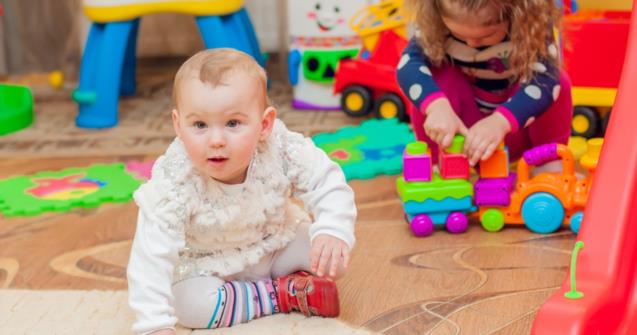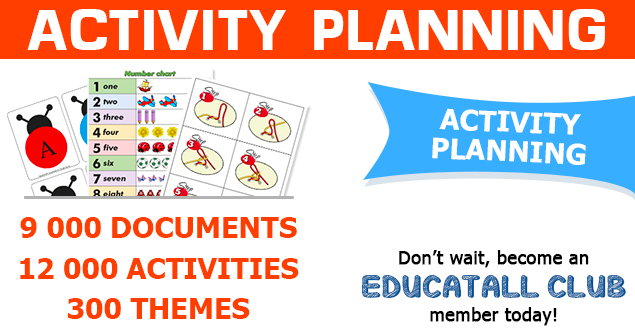
Kindergarten-ready behaviour
Last week, as I was combing the Web, I fell upon a study that highlighted behavioural differences observed when children begin kindergarten. The study noted great variability in terms of self-control and social abilities.
Reading this led me to think of my experience "in the field". In daycare environments, we tend to focus on motor skills as children get closer to kindergarten: running, climbing, catching a ball, pre-writing skills, etc. A great deal of energy goes into developing these abilities and because of this, certain other abilities may sometimes be set aside. However, these other abilities are just as important, maybe even more important.
We are all aware of the fact that many variables can positively or negatively affect how children transition to kindergarten. Many studies have demonstrated how children from disadvantaged backgrounds benefit from less stimulation and little contact with other children their age and therefore lack social skills when they begin kindergarten. I have prepared a non-exhaustive list of protective factors that can positively impact children as they get closer to kindergarten.
The quality of attachment. Many studies have evaluated the importance of parent-child attachment. A strong parent-child bond helps children feel safe and is therefore beneficial for their daycare or kindergarten integration.
A child's temperament. Certain children, per their nature, will easily adapt to new situations. On the other hand, children who are shy or introverted may have trouble adapting to a new environment or situation.
Presence of rules in preschool years. At school, rules of conduct and behavioural systems are introduced as of the first days of kindergarten. Children who are used to respecting limits set forth by adults will have less difficulty adapting to the many rules that are part of school life. There will still be an adaptation period, but it will be much smoother if, during the preschool years, children faced consistent guidelines that helped them feel safe.
The quality of socialization experiences. Children who were given frequent opportunities to socialize and meet others will find it much easier to adapt to their school environment.
Stimulating living environment. The environment in which children grow is extremely important for their development in general. Family life and the positive stimulation opportunities it provides must be considered.
We must not forget to mention all the positive aspects that result from children having integrated a daycare setting during early childhood. As early childhood educators, you play an important role by helping children acquire a wide range of abilities linked to motor skills and behaviour. How can you help children prepare for kindergarten?
Establish clear limits. A healthy environment with clear limits, established rules, and consistent interventions is beneficial for children. Preschool-aged children will be one step ahead if they are already used to respecting rules set forth by adults.
Give children responsibilities. Give children specific daily tasks they can successfully execute. During preschool years, children have a strong need for autonomy. They acquire self-confidence when you provide them with the opportunity to complete various tasks.
Foster children's ability to concentrate and focus during activities. The ability to focus on a task develops gradually. We estimate that children should be able to remain concentrated for approximately 5 minutes per year of life. Preschool-aged children should therefore have the capacity to stay focused on a given task or activity for 20-25 minutes. Offer many board games and group activities that will help them build their concentration skills.
Encourage children to finish what they start. Are there children in your group who begin one activity and move on to another one without ever seeing anything through? Teaching children to complete tasks is important. At school, they will have no choice but to finalize what they start.
Help children make decisions. The ability to make decisions doesn't always come easy. For some, deciding can even be quite challenging. Provide children with the opportunity to make several decisions daily: the book you will read, the type of fruit at snack time, the next activity, etc.
Encourage children to express themselves, express their ideas. It is very important for children to learn to express themselves in front of a group. Circle time and discussion periods around a table will help you develop this capacity. Make sure everyone is given the chance to speak. In a daycare setting, children will practice speaking in front of 4 or 5 peers. They must be comfortable doing so because at school, they will be asked to speak before 20 or more students.
Foster autonomy. Building autonomy is very important. Progressively lead children to successfully feed themselves, wash their hands, brush their teeth, get dressed independently, open containers, etc. This will help them function in a classroom setting.
These elements may seem simple, but believe me, your daily interventions will make a big difference for children. Keep in mind that your job is to fill their little "toolboxes" with the right tools so they can use them when they start kindergarten.
Maude Dubé, Specialized educator

 Home
Home Theme activities
Theme activities
 Babies and toddlers
Babies and toddlers
 Arts and crafts
Arts and crafts
 Science
Science
 Creative recipes
Creative recipes
 Tips and tricks
Tips and tricks
 Special needs
Special needs
 Extra activities
Extra activities
 Educ-TV
Educ-TV
 Newsletter
Newsletter  Online store
Online store Educatall club
Educatall club

